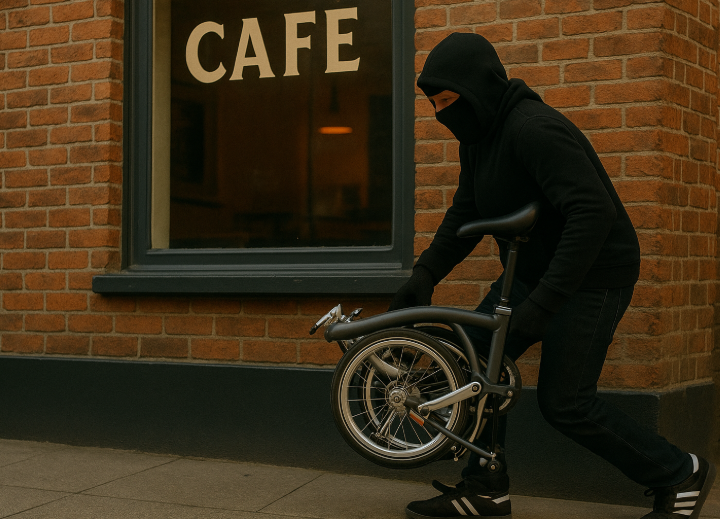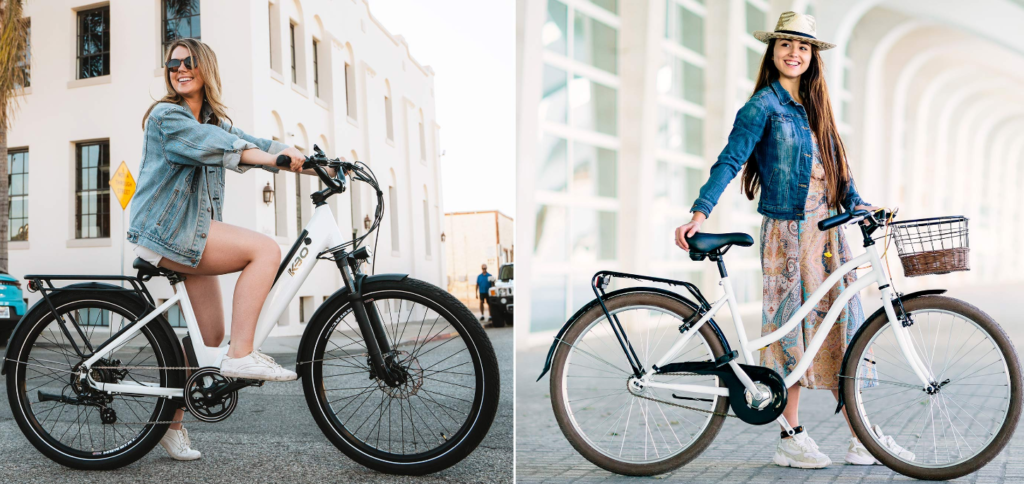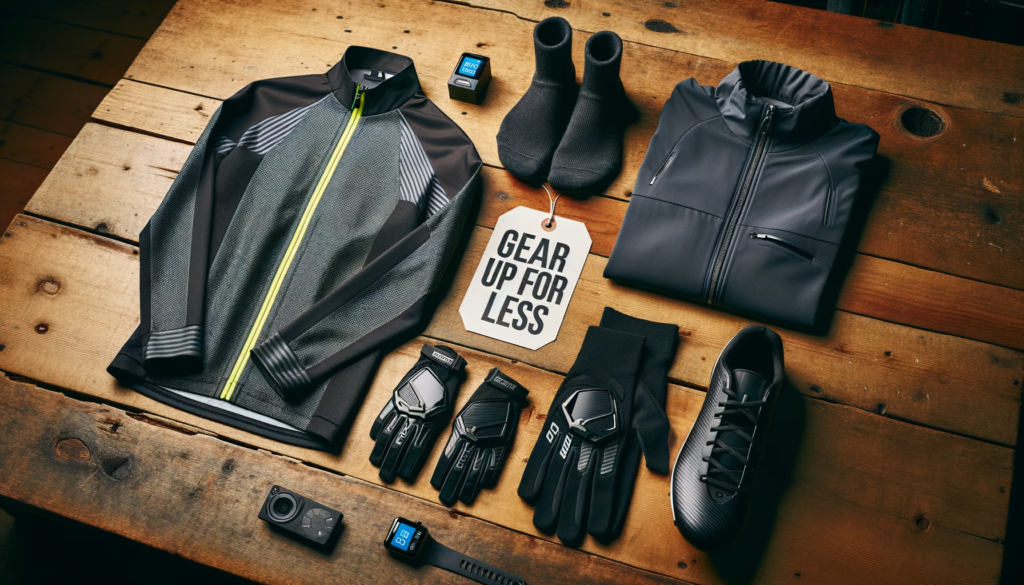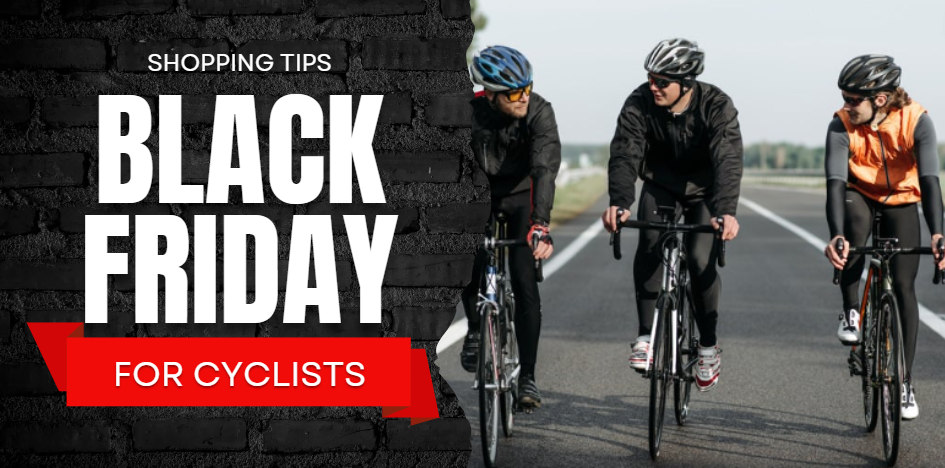Folding bikes are amazing and quickly becoming the go-to choice for city commuters and urban adventurers. They’re compact, portable, and perfect for city life. You can zip through traffic, hop on a train, or tuck them under your desk.
But there’s a catch. These bikes are becoming prime targets for thieves.
Why? They’re expensive, easy to grab, and tough to secure. Thus, theft protection is now a big worry for folding bike users.
Let’s dive into why theft protection is a growing concern for folding bike users like you.
The Rising Popularity of Folding Bikes
Folding bikes are everywhere these days. From busy city streets to quiet suburbs, their popularity is soaring.
Today, more people are choosing them over traditional bikes, especially in crowded cities. But with more riders, there’s more risk. Thieves are noticing.
Let’s break it down.
Why Folding Bikes Are So Popular
Folding bikes are a game-changer. They’re lightweight and fold in seconds. You can take them on buses, trains, or even planes. They’re perfect for commuters who mix cycling with public transport.
Plus, they fit in small apartments or offices. Brands like Brompton and Dahon have made them stylish and high-performing. But here’s the thing: their popularity makes them a target. Thieves know these bikes are valuable.
The High Value of Folding Bikes
Folding bikes aren’t cheap. A good one, like a Brompton, can cost over $1,500. Some high-end models go for $4,000 or more.
Thieves see dollar signs. These bikes are compact, so they’re easy to steal and resell. Unlike a bulky mountain bike, a folded Brompton can disappear into a bag or car trunk in seconds. This makes them a hot commodity on the black market.
Urban Living Fuels Demand
Cities are getting crowded. More people are choosing bikes over cars. Folding bikes are perfect for urban commuters. They’re easy to store and carry.
But city life also means more bike theft. Busy streets, crowded bike racks, and quick getaways make it easy for thieves to strike. The more folding bikes on the streets, the more thieves take notice.
Why Folding Bikes Are Easy Targets
Folding bikes have unique features that make them vulnerable. Their design is both a strength and a weakness. Let’s look at why.
Compact Size Makes Them Easy to Steal
The same thing that makes folding bikes great—their size—makes them easy to steal. A folded bike is small enough to tuck under an arm or toss in a car. Thieves don’t need to ride it away. They can just grab it and go. Even if it’s locked, a small bike is easier to carry off than a full-sized one. This portability is a double-edged sword.
Limited Locking Options
Many folding bike users make a big mistake: they use regular bike locks. These are often bulky and not suited to the compact frame of a folding bike. Worse, they can be ineffective if they don’t secure the right parts.
For example, locking only the frame or front wheel of a folding bike can be risky. Thieves know how to dismantle parts quickly and walk away with what matters most.
That’s why lock choice is critical. You need something strong, smartly designed, and tested against common theft techniques like bolt cutters or lock picking. Again, if you’re unsure which lock to get, our list of the best bicycle locks for Brompton bikes breaks it down clearly.
Thieves Target High-Value Brands
Bromptons, in particular, are a thief’s dream. They’re well-known and expensive. Thieves can spot a Brompton from a mile away. Other brands like Tern or Dahon are also targets. These bikes are often left outside cafes or shops for just a few minutes. That’s all a thief needs. The brand’s prestige makes them a magnet for theft.
The Growing Threat of Bike Theft
Bike theft isn’t new, but it’s getting worse. Cities are seeing a spike in stolen bikes, especially folding ones. Let’s explore why this problem is growing.
Bike Theft Is on the Rise
Bike theft is a big issue in urban areas. In cities like Seattle, London, and New York, theft rates are climbing. For example, Seattle has seen a surge in bike theft, with even high-security locks being defeated by determined thieves. Thieves are getting bolder, using tools like angle grinders to cut through locks in seconds. Folding bikes, being small and valuable, are prime targets.
Thieves Are Getting Smarter
Thieves aren’t just snipping cables anymore. They’re using power tools, lock-picking kits, and even vans to steal bikes. Some target folding bikes specifically because they’re easy to resell. They know how to spot a poorly secured bike. They also know folding bikes can be disassembled quickly, bypassing some locks. This makes it harder for owners to keep their bikes safe.
Lack of Secure Parking
Many cities lack secure bike parking. Public bike racks are often flimsy or poorly placed. A thief can lift a bike over a short post or cut through a weak rack. Folding bike owners often rely on these racks when they can’t bring their bike inside. Without better infrastructure, bikes remain vulnerable.
The Emotional and Financial Impact
Losing a folding bike isn’t just about money. It’s a gut punch. Let’s talk about why theft hits so hard.
The Cost of Replacement
Replacing a stolen folding bike is expensive. A new Brompton or Tern can set you back thousands. Even with insurance, you might face high deductibles or delays. Plus, many owners customize their bikes with accessories. Losing those adds to the cost. For many, a stolen bike means months of saving up for a replacement.
Emotional Attachment
Folding bikes are more than just transport. They’re part of your lifestyle. You might use it daily for your commute or weekend adventures. Losing it feels personal. It’s not just a bike—it’s your freedom, your routine, your joy. The thought of someone stealing it can make you anxious every time you lock it up.
Disruption to Daily Life
A stolen bike can mess up your routine. If you rely on it for commuting, you’re stuck finding other ways to get around. Public transport might not be as convenient. Walking takes longer. For many, a folding bike is their main way to get to work or run errands. Losing it throws everything off.

How Folding Bike Owners Can Protect Themselves
The good news? You can take steps to protect your bike. It starts with understanding your options and being proactive. Here’s how.
Choose a High-Quality Lock
A good lock is your first line of defense. Look for locks with a Sold Secure Gold or Diamond rating. These are tested to resist serious attacks, like bolt cutters or angle grinders.
Some smart locks even use fingerprint access or connect to your phone through Bluetooth. These added layers of protection make it harder for thieves to succeed—and easier for you to locate your bike if it’s stolen.
Lock Smart
How you lock your bike matters. Always secure the frame and at least one wheel to a solid anchor, like a bike rack or pole. Avoid flimsy posts that can be cut or lifted. If possible, lock your bike in a busy, well-lit area. Thieves hate attention. For folding bikes, thread the lock through the frame’s triangle to prevent disassembly. Double-locking with a U-lock and a cable can add extra security.
Use Bike Insurance
Insurance is a lifesaver. Companies like Velosurance offer policies for folding bikes. If your bike is stolen, insurance can cover the cost of a replacement. But check the fine print—many insurers require a high-security lock, like a Sold Secure Gold-rated one. Keep proof of purchase and photos of your bike to make claims easier.
Take Advantage of Folding Features
The beauty of a folding bike is that you can take it inside. Whenever possible, bring it into your office, home, or even a cafe. Most folding bikes are small enough to fit under a desk or in a corner. If you must leave it outside, fold it and lock it tightly to a rack. A folded bike is harder to ride away, which might deter some thieves.
Consider GPS Trackers
GPS trackers are becoming popular. Devices like the Knog Scout can be hidden on your bike. If it’s stolen, you can track its location. While not foolproof, trackers increase your chances of recovery. Pair them with a good lock for maximum protection.
The Role of Community and Infrastructure
Theft isn’t just an individual problem. Communities and cities play a big role. Let’s look at how they can help.
Community Awareness
Cyclists can work together to fight theft. Online forums, like Reddit’s r/Brompton, are full of tips from owners. Sharing advice on locks or safe parking spots helps everyone. Reporting thefts to local police or bike registries also builds awareness. The more we talk about it, the more pressure there is for solutions.
Better Bike Infrastructure
Cities need to step up. Secure bike parking, like locked cages or indoor racks, makes a huge difference. Some cities, like Amsterdam, have dedicated bike garages. Others are starting to add high-security racks. Push your local government for better options. It’s a win for all cyclists.
Education and Advocacy
Many riders don’t know how to lock their bikes properly. Community workshops or online guides can teach best practices. Advocacy groups, like Cycling UK, push for better laws and enforcement against bike theft. Supporting these efforts can lead to real change.
Final Thoughts: Protect Your Ride Before It’s Too Late
Folding bikes bring freedom, flexibility, and fun to everyday life. But their growing popularity, compact size, and high resale value also make them a big target for thieves.
That’s why theft protection isn’t optional anymore—it’s essential.
Losing a bike hurts, financially and emotionally. But you’re not helpless. A high-quality lock, smart locking habits, insurance, and community support can keep your bike safe.
Your bike is worth protecting. Make sure it stays yours.




